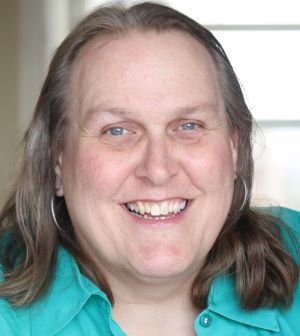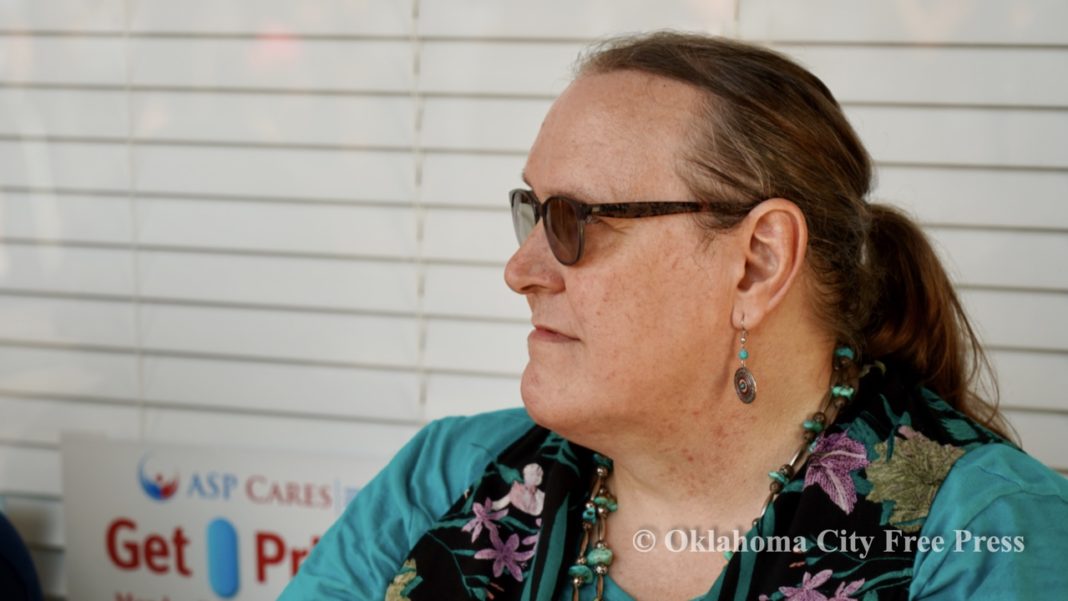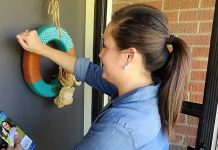Last Updated on January 5, 2024, 12:57 AM | Published: June 4, 2021
Paula Sophia Schonauer, LCSW, continues a serial memoir. If you haven’t read the earlier parts of this series, look at the bottom of this page.
“Some things are better left unsaid, which I certainly realize, right after I say them.”
Anonymous
The neighborhood on 8th Street was full of kids, many of them curious about the family that had moved into the fire-damaged house next to Jack’s Sunoco and its backlot full of cannibalized vehicles.
At times, the kids came over to watch Dad work, to ask him if the house was haunted because of the way Aunt Mabel had died. He teased them, telling them they should spend the night sometime, to which all of them would say, “No thanks.” But there I was, evidence a kid could survive the night, time and again.
My survival in a reputed haunted house did not gain me status. Rather, it provoked pity or disdain. As a haunted kid, I was easily triggered, prone to emotional outbursts, sentimental and brooding, and “queer.” New neighborhood. Same old problem.
It’s hard to pinpoint the genesis of labels. Maybe it was the thrift store hand-me-downs I had to wear.

At one point, I was wearing a pair of jeans one of the older girls in the neighborhood recognized as having belonged to a girl a few streets over. The jeans had peace symbols and smiley faces on the back pockets, hand-drawn with fabric paint.
“Did you know you’re wearing a girl’s pair of jeans?” she said.
She might have been trying to tease in a friendly way, but her tone of voice triggered thoughts of Uncle Jim and his malicious derision. I stridently argued against her observation, telling her they couldn’t be a pair of jeans for a girl because a boy was wearing them.
“Are you sure you’re a boy?”
I couldn’t respond to her question. It was more of a statement than an inquiry. My face felt hot, and I started to cry, betraying, perhaps, that I was, after all, not sure I was a boy.
The boys in the neighborhood took notice of my lagging athletic ability. Being big for my age amplified that maladjustment. If they included me in a game of streetball, every time the ball came my way, I tried to dodge it. Sometimes, I stopped the ball, but only by accident, when I was too slow to get out of the way.
When I threw the ball, it lobbed off target, too slow to make a play.
The worst was when I tried to bat; I closed my eyes before swinging, almost always striking out. Needless to say, I was nobody’s first choice as a teammate.
My parochial school let out a half-hour later than public schools. By the time I was heading home, Bolich Junior High kids were walking the streets, clustered in peer groups, stopping at stores, pizzerias, and the Dairy Queen just around the corner from my house.
I went to great lengths to avoid them, sometimes ducking into hiding places to avoid groups of rough-looking boys clad in jeans, wallet chains, and leather jackets. A lot of them smoked cigarettes, and they cussed and shouted in a flagrant show of aggression.
Other times, I crossed the street, jaywalking to avoid them. After a month of this, they must have noticed my behavior.
A particularly nasty bunch ambushed me near the Sparkle Mart on 7th Street. They jumped out, made fun of my Corduroys and loafers, my collared shirt, and my blue faux-fur winter coat complete with lapels and buttons, a coat Grandma bought me. I hated that coat.
“Hey, it’s Little Lord Fauntleroy!”
I had no idea who Lord Fauntleroy was, but I knew it was not a compliment. Later, I learned he was a character in a 19th Century novel and a 1930’s movie, that he wore velvet and lace, had long curls, and looked more like a girl than a boy, at least by modern standards.
The boys grabbed me, stripped me of my coat, and threw me into a bank of snow. One boy got a handful of yellow snow and held it to my mouth. “Eat it, you little queer.”
A worker from the grocery store came out, yelling at the boys, and, mercifully, they scattered before I had to taste the yellow snow. Though saved at the moment, this harassment would be an ordeal I endured repeatedly for most of the next two years.
I might have labeled myself, though.
At times, kids from the neighborhood visited our house to get a progress report on Dad’s restoration project. They were curious to see where Aunt Mabel had died like rubberneckers driving near highway accidents.
Dad let them see our surreal home, more damaged than restored, walls dark with soot, floors perpetually dirty, and though the living room floor had shown improvement, the hole near the fireplace remained. The hole was the thing, an opening to another dimension, churning with darkness and morbid pathos. One could hardly see the basement at the bottom of it.
One day in early March, two girls from the neighborhood had come to visit when Mom was home alone with my siblings. I stood outside their little circle, peaking around the molding of a doorway. I listened, afraid to announce myself. They discussed what the place looked like before the fire, how it was hard to believe what had happened, and how they were sad for Aunt Mabel’s daughters and their dad.
For some reason, Kim, a chubby girl with a pretty face and long brown hair, changed the subject. “Look, I’m starting to show.” She thrust her chest outwards, revealing two bumps beneath her white blouse. I could see bra straps beneath the fabric.
The other girl, Cindy, shook her head. She was thin with curly blond hair. She thrust her chest toward Mom. “Me too,” she said, not so loud. Her development was not obvious. It seemed there had been a little, but it might have been the padding of her training bra. Mom affirmed each girl, congratulating them. They beamed with pride, basking in her acceptance.
I remember feeling an ache in my chest. “I wish I had them, too.”
Mom and the girls looked at me, Mom frowning, shaking her head. The girls did their best to stifle their laughter, eyes wide with amusement.
I had not realized, until witnessing their reactions, I had actually spoken my wish. Those words had formed in my mind and had fallen out of my mouth without inhibition, boiling out like a confession.
I retreated across the living room bridge and ran upstairs, darting into what appeared to be a closet in a corner bedroom, but it was actually a stairway leading into the attic, the wood trusses beneath the roof visible like the bones of a whale’s rib cage.
I ran to the windows on the east side of the attic and stared down at the girls as they left the house, walking together and laughing.
I was sure they were laughing about me.
This post is the latest of a serial memoir Paula Sophia is writing about her life. We are honored that she chose Free Press as the platform. The following links are to earlier parts of the memoir.
- Manhood, from the inside out — Memoir and Mythology
- Part 2 — Cubby Hole
- Part 3 — Magic Carpet Cocoons
- Part 4 — Snips and Snails and Puppy-Dogs’ Tails
- Part 5 — Mirror
- Part 6 – Deep Water
- Part 7 – Limbo
- Part 8 – Dissociation
- Part 9 – Shame
- Part 10 – Judgement Day
- Part 11 – Inferno
- Part 12 – Haunted
Guest Columnist Paula Sophia is a licensed clinical social worker in Oklahoma City and a former Oklahoma City Police Officer.







